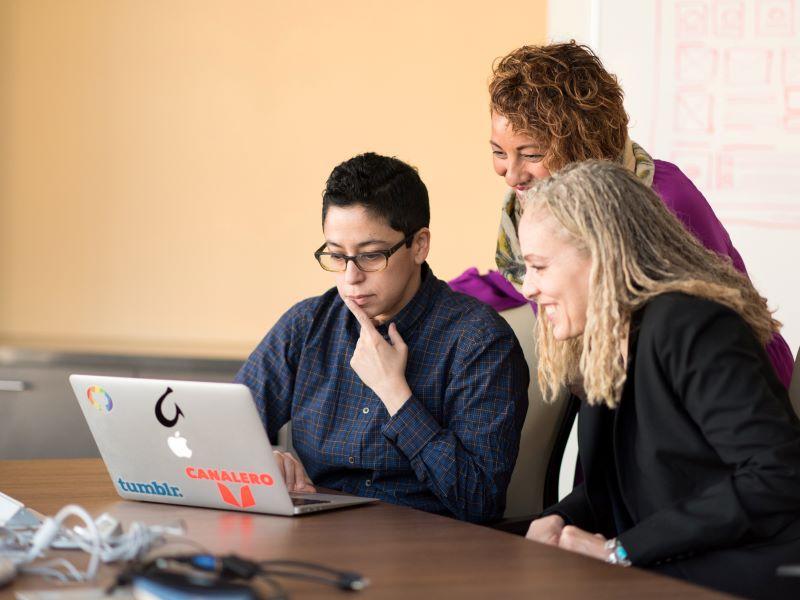What is it that makes one student grasp an opportunity, and others not? What barriers are preventing participation? The students themselves hold the answers to identifying and removing these barriers, and helping us implement change. We’ve set out to tackle this with our foundation mentoring scheme, designed for students and with students.
The scheme supports foundation students as they transition to life at university, but benefits all participants – expanding their networks and developing their confidence. Students who share their experience of university with foundation students feel more connected to their campus community. We’ve seen this come full circle as mentees return in later years to become mentors.
Schemes like ours not only foster individual development but create a more connected, welcoming academic community. But how to extend the opportunity to as many students as possible?
Co-creating research
We invited students to express their interest in the co-creation project via email. Through collaborative conversations about shared experiences, we built trust and rapport with the student partners, creating a supportive and inclusive environment for collaboration. We discussed how we would work together and how frequently we would meet. We co-created the objectives and aims to remove barriers to the scheme and widen participation, as well as the methods.
The mentoring scheme was highly successful but many students still did not participate. It was this questioning that started our recent co-creators research project, investigating why some students participate and others do not. Our project aimed to identify barriers to participation and offer practical recommendations that can make peer-mentoring schemes, such as our foundation mentoring scheme, more inclusive and effective.
- Co-creation that treats students as collaborators, not consultants
- How can Jenga build course co-creation?
- Co-creation as a liberating activity
We hosted an initial brainstorming session with students, which is important in developing relationships and communication. We agreed that focus groups and surveys would be the best approach, using themes from the focus groups to inform a co-created survey.
The students hosted these focus groups, asking questions based on their involvement in the mentoring scheme, such as “Have you participated? If not, why not?” Focus group participants were also asked to describe what belonging means to them. They highlighted experiences such as feeling part of a community, being valued and recognised as an individual, and having opportunities to contribute authentically.
It was important that students hosted the focus groups because speaking to peers creates low-stakes opportunities. They are more likely to be candid and share their thoughts and opinions. The student partners also recruited all the participants. Working in partnership in this way can have further benefits – such as access to a wider student-centred network, which all higher education professionals will know can be difficult to achieve for a focus group! To capture more student voices, we also co-created a survey asking what barriers exist for them.
The study revealed that the mentoring scheme aligns well with students’ academic and personal goals and fosters reciprocity. As noted, mentees often return as mentors, which supports longevity and ongoing community networks. The main barriers, however, were lack of time, lack of promotion, wider societal factors and the cost of living. The participants’ recommendations included promoting the scheme through university-wide events, organising social activities to strengthen peer connections, offering diverse mentoring formats and continuing to co-create and promote student-led approaches to better reach students who might not typically participate.
Most importantly, students led the research and suggested recommendations to make sure future iterations of the mentoring scheme are more inclusive and welcoming. Working in partnership with students offers opportunities to collaborate on research across different areas, within and through the university. It allows for a more compassionate approach and considers other stories, voices and perspectives that might be missing from our research. Students are directly involved in decision-making processes and driving change, as with our co-creators project.
Based on our experiences and reflections, we have included five recommendations to make your co-creation and partnership projects with students more inclusive and effective:
- Promote and recruit students from across the student body or your discipline, depending on your project
- Encourage students to lead
- Establish boundaries together
- Prioritise communication
- Always remunerate students
Amy MacLatchy is lecturer in foundation at the Centre for Education and Teaching Innovation at the University of Westminster.
If you would like advice and insight from academics and university staff delivered direct to your inbox each week, sign up for the Campus newsletter.




comment